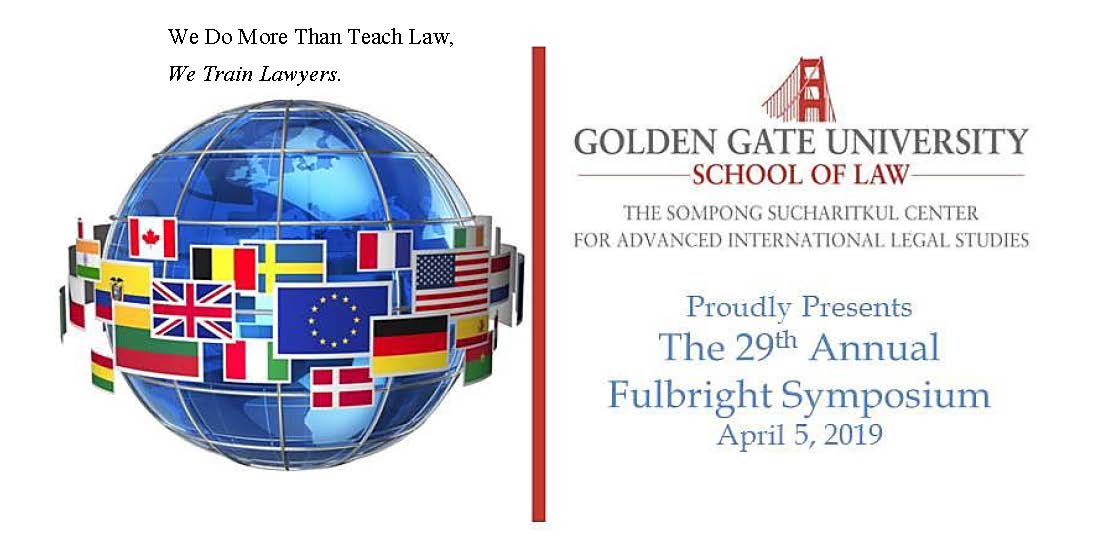Event Title
Afternoon Panel: Energy Geopolitics, Shale Revolution and International Law
Start Date
27-3-2015 2:00 PM
End Date
27-3-2015 5:00 PM
Description
The unlocking of massive quantities of oil and gas resources trapped in shale and other tight rock formations in the United States through a combination of hydraulic fracturing and horizontal drilling has been dubbed the “Shale Revolution.” While still ongoing, this revolution has already produced a number of winners and losers. Individuals have benefited through good paying jobs and lower energy prices while state and local authorities have seen an increase in tax revenues. On the other hand, there are questions that touch on water contamination, environmental degradation and infrastructural damage.
At the international level, the revolution has become a critical component in geopolitical battles that span across the Middle East and Europe. Some countries desire to bring an end to the revolution to prevent displacement in the global energy equation. Other countries see a potential to diversify supply sources and recalibrate their energy alliances for greater security and political leverage. Approaches to combating climate change may also be revisited and refined as we more closely examine the place of natural gas in simultaneously helping and hindering the cause through its impact on use of coal and emergence of renewable energy. At the end of the day, a new set of leaders and losers among countries are likely to emerge. The specter of failed states is becoming real, as oil-dependent countries, especially in Africa, deal with low prices for their natural resources. Multinational corporations would curtail capital investments with attendant consequences for the receiving countries and the global economy.
In the midst of these unprecedented changes, what would be the response of international law? This paper argues that international law has a traditional role in preventing a disruption of world order and international peace. It needs to evolve new tools and deploy existing devices for addressing threats to peaceful international relations and chaotic situations that spill across borders.
Afternoon Panel: Energy Geopolitics, Shale Revolution and International Law
The unlocking of massive quantities of oil and gas resources trapped in shale and other tight rock formations in the United States through a combination of hydraulic fracturing and horizontal drilling has been dubbed the “Shale Revolution.” While still ongoing, this revolution has already produced a number of winners and losers. Individuals have benefited through good paying jobs and lower energy prices while state and local authorities have seen an increase in tax revenues. On the other hand, there are questions that touch on water contamination, environmental degradation and infrastructural damage.
At the international level, the revolution has become a critical component in geopolitical battles that span across the Middle East and Europe. Some countries desire to bring an end to the revolution to prevent displacement in the global energy equation. Other countries see a potential to diversify supply sources and recalibrate their energy alliances for greater security and political leverage. Approaches to combating climate change may also be revisited and refined as we more closely examine the place of natural gas in simultaneously helping and hindering the cause through its impact on use of coal and emergence of renewable energy. At the end of the day, a new set of leaders and losers among countries are likely to emerge. The specter of failed states is becoming real, as oil-dependent countries, especially in Africa, deal with low prices for their natural resources. Multinational corporations would curtail capital investments with attendant consequences for the receiving countries and the global economy.
In the midst of these unprecedented changes, what would be the response of international law? This paper argues that international law has a traditional role in preventing a disruption of world order and international peace. It needs to evolve new tools and deploy existing devices for addressing threats to peaceful international relations and chaotic situations that spill across borders.


Comments
Emeka Duruigbo is nationally and internationally recognized as a scholar and advocate, with a focus on Energy Law, Business Law, and International Law and Development. He is a professor of law at Thurgood Marshall School of Law at Texas Southern University where he teaches courses in Business and Oil and Gas Law. Prior to joining the faculty at Thurgood Marshall, Professor Dr. Duruigbo was a senior legal counsel at Natural Heritage Institute in San Francisco, a resource development associate at LawFinance Group, Inc., and a research fellow at the Program for Energy and Sustainable Development at Stanford University. He has authored a book, several book chapters and numerous articles on various legal subjects ranging from international law and petroleum law to corporate law and finance. His scholarship has been cited in leading law journals across the world and by state and federal courts and in an amicus brief at the United States Supreme Court.